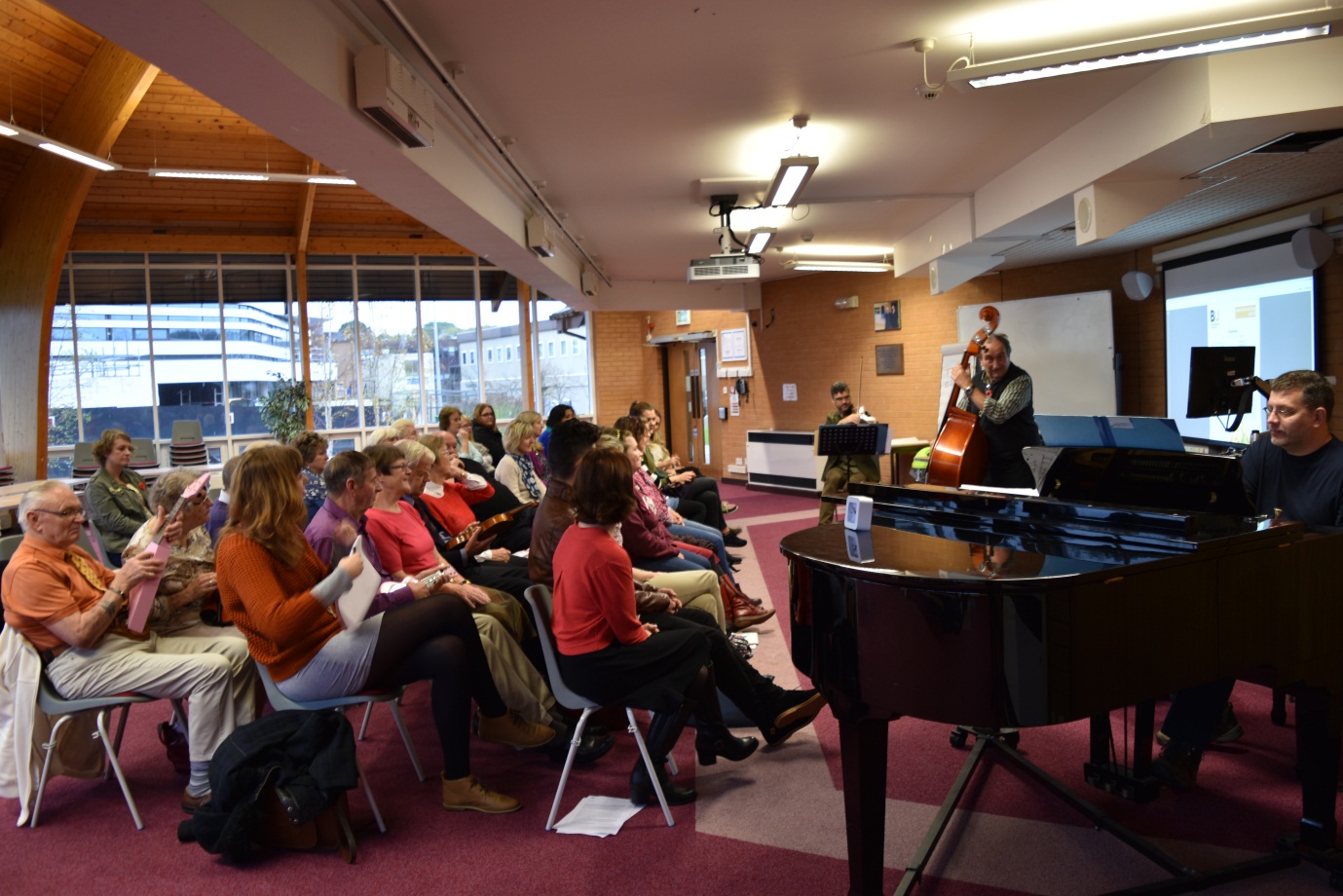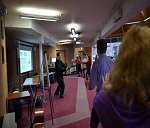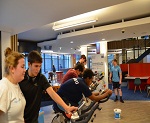The following funding opportunities have been announced. Please follow the links for more information.
Arts and Humanities Research Council
PaCCS Conflict Theme (2 calls). The call for Interdisciplinary Innovation Awards (up to 18 months and up to £100,000 fEC) aims to support the development of innovative, adventurous, higher risk, interdisciplinary research, including projects at an earlier stage of interdisciplinary evolution and/or led by early career researchers. The call for Interdisciplinary Research Grants (up to 48 months and between £400,000 and £800,000 fEC) aims to support innovative interdisciplinary research proposals related to specific conflict themes. Closing Date: 22/10/15
Biotechnology and Biological Sciences Research Council
Highlight notice in novel tools and technologies for vaccinology. The BBSRC, MRC and EPSRC are working together on a scheme which aims to fund cutting edge technology across the Councils’ portfolios into vaccine development and early-stage manufacturing research, and foster research that may be applicable across different diseases.Expression of Interest Closing Date: 17/9/15 at 16:00
Economic and Social Research Council
Future Research Leaders 2016. The Future Research Leaders scheme aims to enable outstanding early-career social scientists, in partnership with their host organisation, to acquire the skills set to become the future world leaders in their field. Grants will be for a maximum of two years, with a pro-rata duration option for those employed part-time on a contract of 0.5 FTE or above. There is an overall limit of £230,000 (at 100 per cent full economic cost) although the actual amount you can apply for will vary depending on when you submitted your PhD and your level of academic experience. Closing Date: 29/9/15 at 16:00
Engineering and Physical Sciences Research Council
Healthcare Impact Partnerships 2015/2016. This call is open to eligible UK academics who have held an EPSRC grant or portfolio of grants relevant to the capabilities of Disruptive Sensing and Analysis or Medical Device Design and Innovation. An overall budget of £5m is available. Intention to submit a proposal Closing Date: 27/8/15 at 16:00
The Health Foundation
Behavioural Insights Research Programme will make up to £1 million available to support a number of multidisciplinary research teams, consisting of psychology and behavioural economists, health care professionals, support-staff and managers, patients and those with design expertise. Awards will be between £200,000 and £350,000 for research completed over two to three years. Closing Date: 30/9/15 at Noon.
Innovate UK
Developing regenerative medicines and cell therapies. Innovate are to invest up to £8 million in collaborative R&D projects to stimulate the development of regenerative medicines and cell therapies in the UK. Proposals must be collaborative and led by a business and projects are expected to range in size from total costs of £500,000 to £2.5 million. Registration closes: 26/8/15 at Noon. Expression of Interest Closing Date: 2/9/15 at Noon.
Natural Environment Research Council
Green Infrastructure Innovation Projects. Proposals are invited that address the issues and opportunities around green infrastructure (GI) in the planning and investment decisions that are made by local policymakers, local planners and organisations responsible for developing the built environment. A maximum of £125k may be requested for projects lasting up to two years. Closing Date: 22/10/15 at 16:00
Independent Research Fellowship (IRF) Scheme is designed to develop scientific leadership among the most promising early-career environmental scientists, by giving all fellows five years’ support. Closing Date: 1/10/15
Science for Humanitarian Emergencies & Resilience (SHEAR) research programme Research Consortia Grants 2015. Outline proposals are invited for world-leading research into hydrological controls on landslide hazard in South Asia or flood and drought risk assessment, modelling and forecasting in Sub-Saharan Africa. Funding of up to £2m full economic cost (FEC) will be available per consortium with a total available budget of £8m. Closing Date: 1/9/15 at 16:00
Understanding the Value of the Natural Environment for Improving Human Health & Wellbeing. A funding pot of up to £3·96m (80% FEC) from NERC, AHRC and ESRC is available, which is expected to support between three and six interdisciplinary proposals of up to three years duration. This will provide an opportunity for natural and social scientists, arts and humanities researchers to form substantial interdisciplinary research collaborations. Closing Date: 22/9/15
Royal Society
Newton International Fellowship. The scheme provides the opportunity for the best early stage post-doctoral researchers from all over the world to work at UK research institutions. Newton Fellowships last for two years. Funding consists of £24,000 per annum for subsistence costs, and up to £8,000 per annum research expenses, as well as a one-off payment of up to £2,000 for relocation expenses and may also be eligible to receive up to £6,000 annually following the tenure of their Fellowship to support networking activities with UK-based researchers. Closing Date: 9/9/15
Wellcome Trust
Seed Awards in Science. Grants of of up to £100,000 for up to two years will be made available to help researchers develop original and innovative ideas which propose to carry out interdisciplinary research across our Science, Medical Humanities, Society and Ethics and Innovations funding. Closing Date: 22/10/15
Sustaining Excellence Awards. The fund is targeted towards organisations which have an excellent track record with the Wellcome Trust (at least 3 awards drawn from any of the Engaging Science schemes) and a desire to maintain best practice in public engagement. Sustaining Excellence awards will typically be in the range of £90,000 to £1,000,000, spread across three to five years. Expression of Interest Closing Date: 25/9/15
World Health Organisation, EDCTP and the UK Medical Research Council
Research and capacity development in support of the EVD response. Proposals is to build and strengthen regional, national, institutional and individual capacities to conduct high quality health research (e.g. clinical trials, operational and/or implementation research) during infectious disease outbreaks resulting in health emergencies. Up to €250k is available per proposal. Closing Date: 6/8/15
Please note that some funding bodies specify a time for submission as well as a date. Please confirm this with your RKEO Funding Development Officer
You can set up your own personalised alerts on Research Professional. If you need help setting these up, just ask your School’s/Faculty’s Funding Development Officer in RKEO or view the recent blog post here.
If thinking of applying, why not add notification of your interest on Research Professional’s record of the bid so that BU colleagues can see your intention to bid and contact you to collaborate.




 This afternoon Prof. Jonathan Parker introduced the final of three session in the Executive Business Centre under the title ‘Enhancing social life through global social research: Part 3. Social science research in diverse communities’. This session was well attended and coveredwas a wide-range of interesting social science research topics.
This afternoon Prof. Jonathan Parker introduced the final of three session in the Executive Business Centre under the title ‘Enhancing social life through global social research: Part 3. Social science research in diverse communities’. This session was well attended and coveredwas a wide-range of interesting social science research topics.






















 Dr. Ashraf cited on ‘Modest Fashion’ in The Guardian
Dr. Ashraf cited on ‘Modest Fashion’ in The Guardian NIHR-funded research launches website
NIHR-funded research launches website Academics write for newspaper in Nepal
Academics write for newspaper in Nepal New paper published on disability in women & girls
New paper published on disability in women & girls MSCA Postdoctoral Fellowships 2025 Call
MSCA Postdoctoral Fellowships 2025 Call ERC Advanced Grant 2025 Webinar
ERC Advanced Grant 2025 Webinar Horizon Europe Work Programme 2025 Published
Horizon Europe Work Programme 2025 Published Horizon Europe 2025 Work Programme pre-Published
Horizon Europe 2025 Work Programme pre-Published Update on UKRO services
Update on UKRO services European research project exploring use of ‘virtual twins’ to better manage metabolic associated fatty liver disease
European research project exploring use of ‘virtual twins’ to better manage metabolic associated fatty liver disease